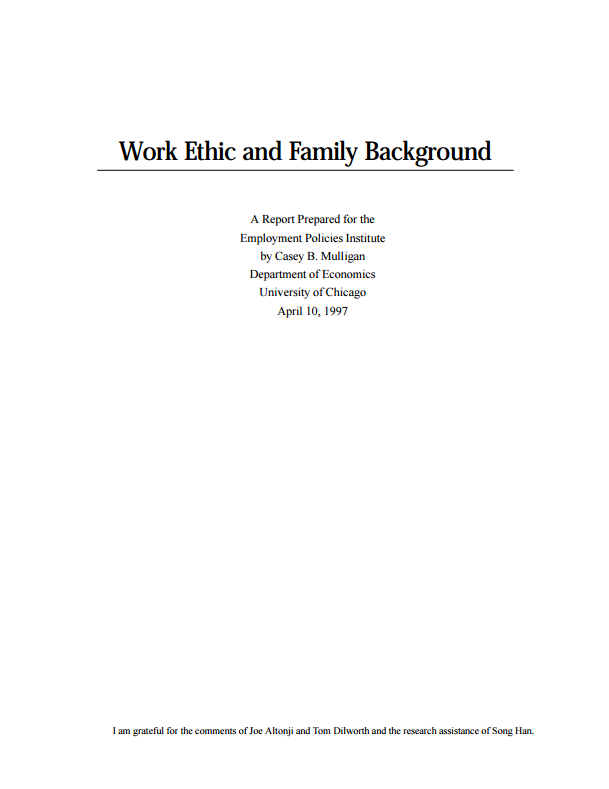Government policies dealing with employment and wages have both short term and long term effects. This is especially true with welfare reform. Clearly, the welfare policies now being developed in response to massive changes in the federal law will have immediate effects on individuals currently dependent on public aid. But what long term effect will these policies have on the children of welfare-dependent parents? When they become adults, will these children be more likely to be employed if their parents have worked more during their children’s formative years?
These and related questions are examined by University of Chicago economist Casey B. Mulligan in his paper, “Work Ethic and Family Background.” As Dr. Mulligan illustrates, there is a direct correlation between the success this generation of welfare recipients has in finding jobs and the likelihood that their adult children will be employed 20 years later.
Using a unique data set that provides decades of detailed information on families, income, employment and welfare participation, Dr. Mulligan quantifies the extent of this employment relationship. A child’s work ethic, shows Dr. Mulligan, is determined both by his or her parents’ inherent work ethic and the amount the parents actually work. By separating these two forces through advanced regression techniques, Mulligan estimates the employment effects that policies such as minimum wage hikes and unemployment insurance might have on future workforces.
Among the patterns uncovered by the study:
- The sons of men whose weekly work hours are ten hours above average tend to work two hours more per week themselves.
- Government policies which lead to three more weeks of unemployment by men are associated with one more day of unemployment by their sons.
- Based on the correlations found in the study, a policy that cuts in half today’s percentage of women participating in welfare will, 20 years later, reduce the welfare participation rate by 5 percent.
Mulligan’s estimates stress to an extent not previously considered the importance of moving welfare recipients into the workforce. Now that welfare reform is a reality, jobs must be found for individuals who lack experience, skills and education. According to government data, more than one-third of welfare recipients are functionally illiterate. High minimum wages and burdensome regulations that hamper this group’s ability to find jobs threaten to seriously impede welfare reform efforts. As this paper shows, the effects of such a failure could be felt for generations.
